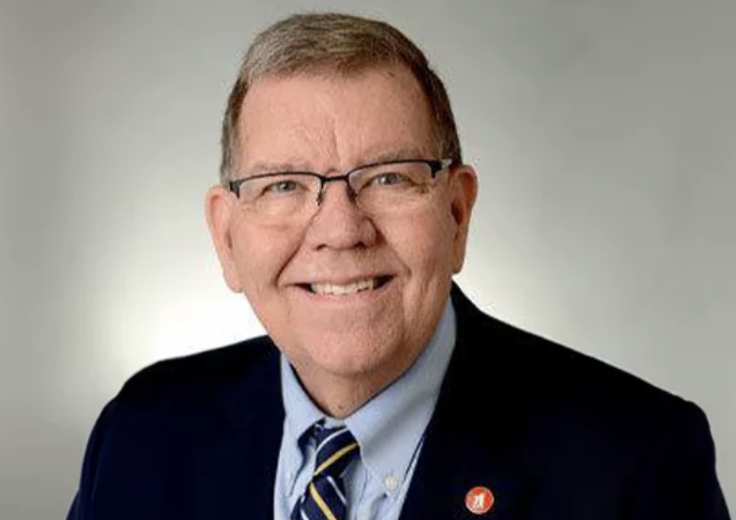
A Legacy of Safety and Selflessness: Remembering CoachSafely Forefather Drew Ferguson
BIRMINGHAM, AL — The Alabama State Legislature, alongside the entire sports medicine community, officially mourned the passing of former CoachSafely Foundation President Robert Andrew “Drew” Ferguson on October 1, 2024, at the age of 73. A resolution offered in tribute to his life highlighted his foundational role in youth sports safety and his unwavering dedication to the citizens of Alabama.
Drew Ferguson’s impact was monumental, driven by a rare combination of passion, dedication, and expertise. His lifelong dedication to athlete well-being was deeply personal: it was inspired by a desire to protect others after the tragic death of his younger brother, Don, from sudden cardiac arrest, and his own decades-long battle with kidney issues.
His dedication earned the respect of colleagues at every level, including world-renowned orthopedic surgeon Dr. James Andrews.
“Drew Ferguson has been at the forefront of the athletic training profession in Alabama—and far beyond—for many years,” said Dr. Andrews. “His passion, dedication, and expertise set a standard that inspired all who worked with him. He is sorely missed by all of us, both as a colleague and a friend.”
Ferguson was the catalyst for landmark public policy, instrumental in the passage of three key acts: the 1993 Athletic Trainers Licensure Act, the 2011 Sports Concussion Act, and the 2018 Coach Safely Act.
Jack Crowe detailed how the final, landmark law began: “The Coach Safely Act took shape in a conversation I had with Drew Ferguson in his office in 2016. He oversaw the development of the course that has saved a little girl’s life and trained coaches that have kept 1 million Alabama children safer since its passage in 2018.”
Crowe further underscored Ferguson’s unrivaled influence: “Over the 30 years of his professional life, his influence with all of the state’s public officials for safety in all levels of sports was unsurpassed.” As Joe Davidson simply put it, “So many people knew him, and he knew so many people. He was THE guy.”
Beyond legislation, Ferguson initiated and coordinated efforts to place automated external defibrillators (AEDs) in City of Birmingham and Jefferson County Schools, working steadfastly to ensure the life-saving devices were operational and accessible.
Drew Ferguson’s professional career began immediately after earning his Master of Education from The University of Alabama at Birmingham (UAB) in 1975.
- Pioneering Institute: In 1975, he and Dr. Kurt Niemann founded the Sports Medicine Institute of Alabama, which is known today as Children’s of Alabama Sports Medicine, where he served as director for over 30 years.
- UAB Athletics: He was the head athletic trainer for the UAB Blazers under the legendary head basketball coach, Gene Bartow. Murry Bartow spoke movingly about his personal and professional impact: “Drew was an incredible person and meant so much to so many people… He was so selfless! Even in the midst of his own health challenges, he was always looking to help others!”
- Global Recognition: His dedication extended to the highest levels of competition, including serving as the Certified Athletic Trainer for the 1996 U.S. Olympic Track and Field teams in Atlanta and as Medical Director for the 2022 World Games in Birmingham.
Chris King from the Alabama Athletic Trainers Association honored Ferguson as a “forefather” of the profession, noting that he “laid the foundation for many things that Athletic Trainers today are able to stand on… Drew paved the way for today’s patients of all ages to have access to high-quality healthcare.”
Ferguson’s selfless dedication often manifested through personal mentorship.
Chris King recalled a pivotal moment from 1992 when, as a young athletic trainer starting out, he reached out to Ferguson for advice. When King admitted he didn’t have a good kit to use, Ferguson simply grabbed one from a storage closet and handed it to him. “I used it for multiple decades and I still have it today. I keep it to remember where I came from and to help as many young ATs as I can along my way.”
Chad Gilliland, another colleague, found that Ferguson’s mentoring began when he was a patient: “Drew was always a mentor for me even in high school when he treated me for a couple of ankle fractures.” Gilliland noted that Ferguson’s influence extended to professional ethics: “His collegial approach across competitive landscapes resonated with me even today and how to do what’s right for all no matter who they worked for.”
For his tireless efforts, Ferguson received numerous honors, including induction into the Alabama Sports Hall of Fame and the UAB Athletics Hall of Fame. The principles he championed live on, continuing to protect and serve athletes across Alabama and the nation, making “THE guy” a figure whose profound impact will never be forgotten.
